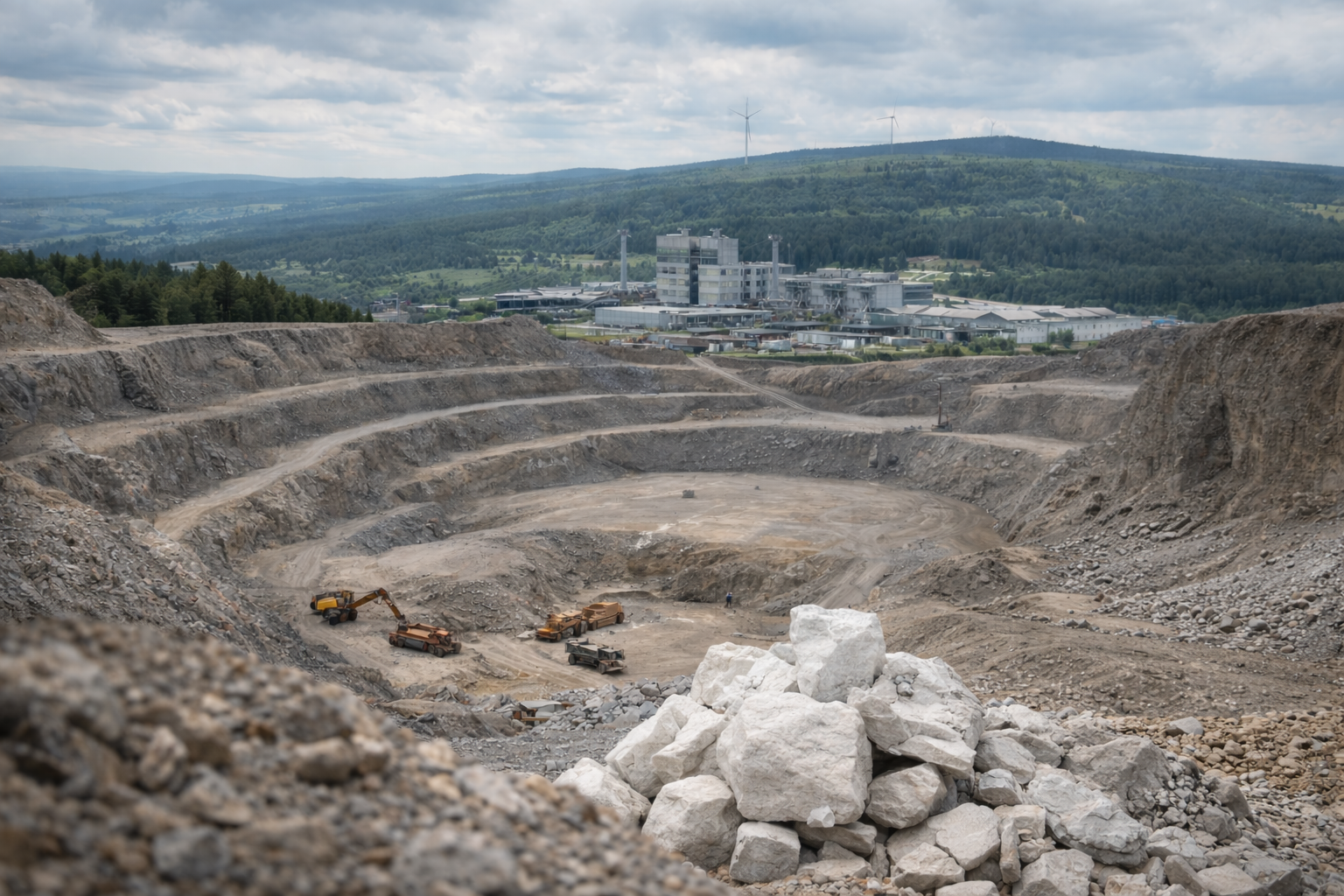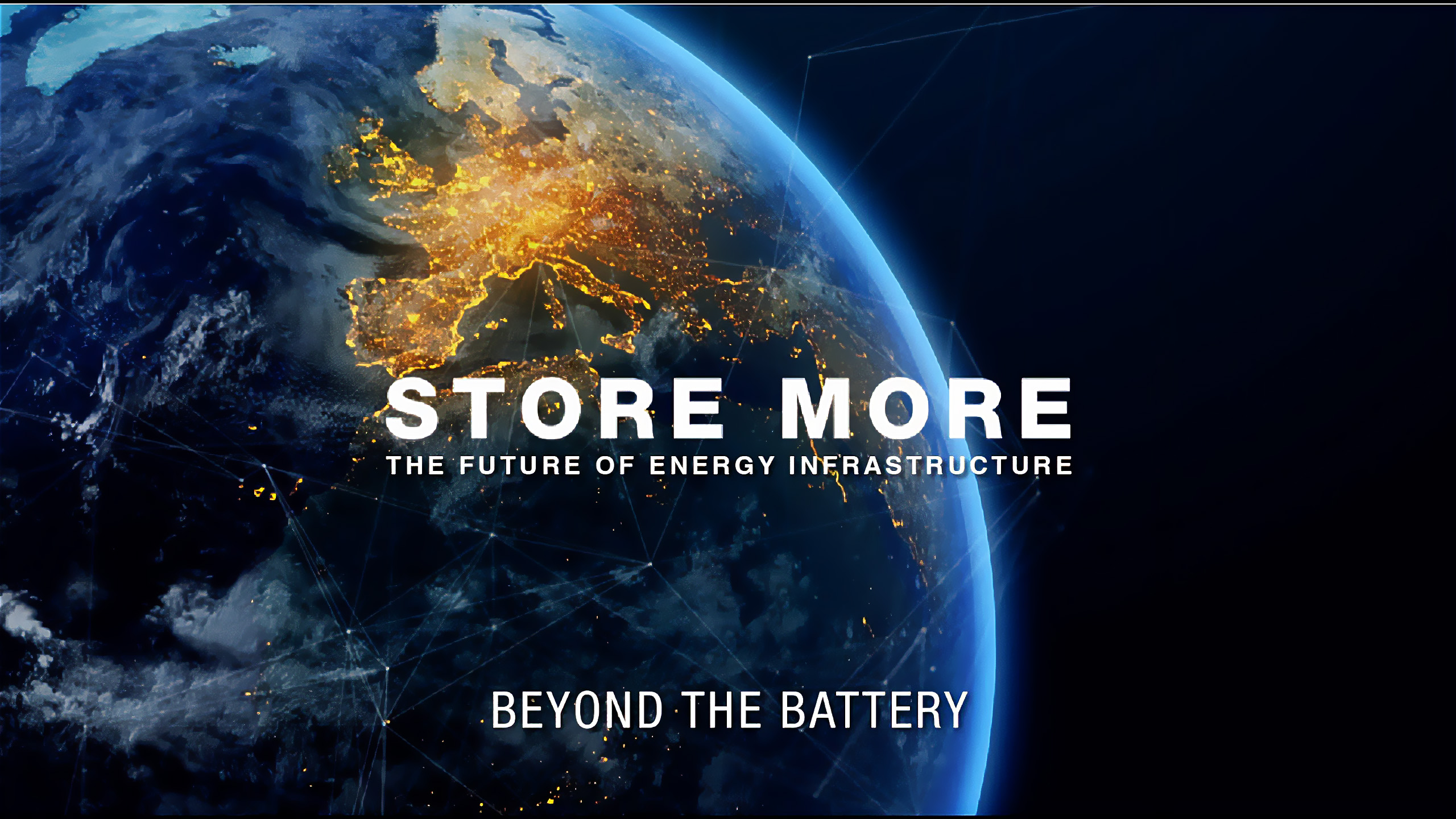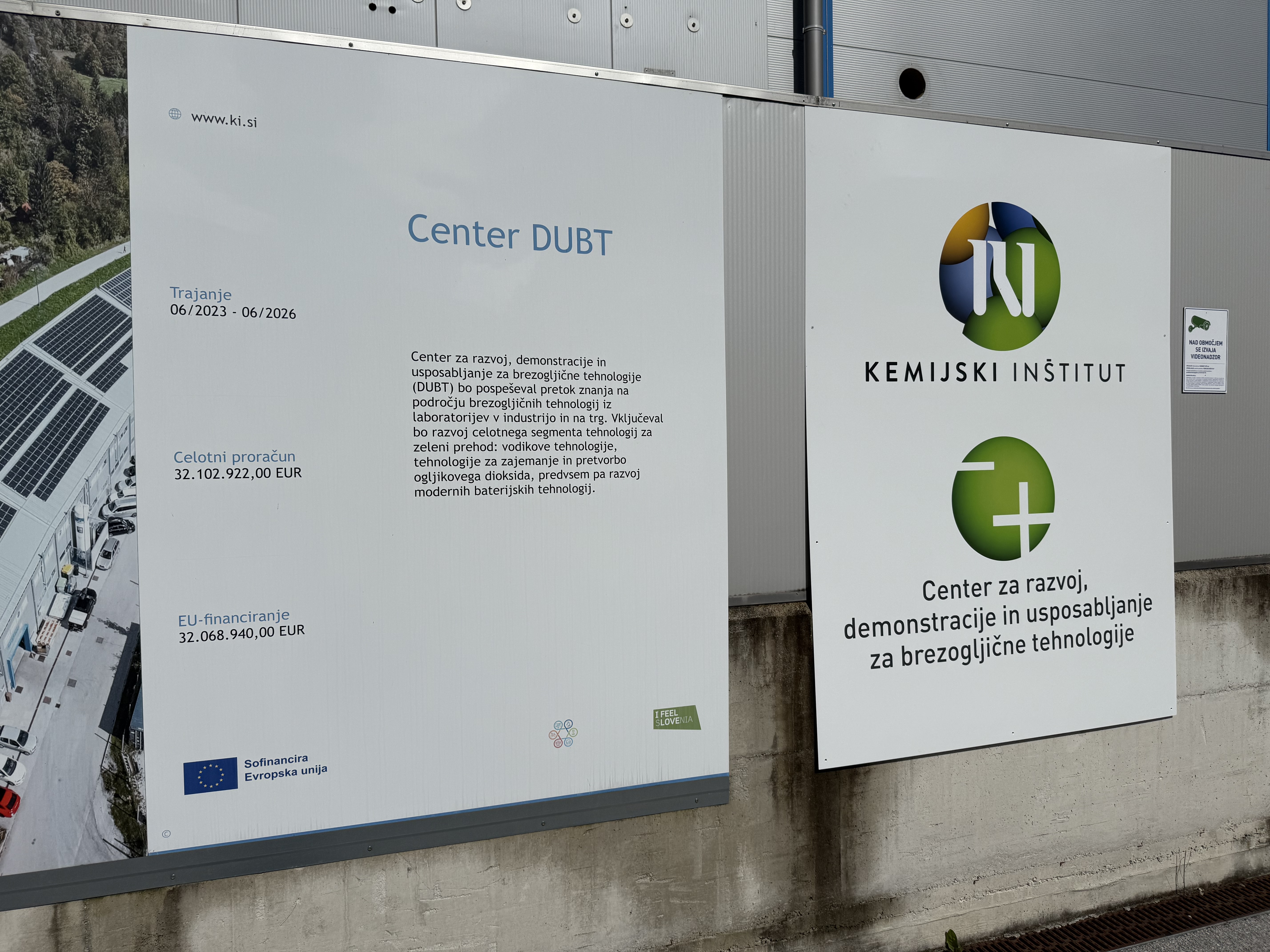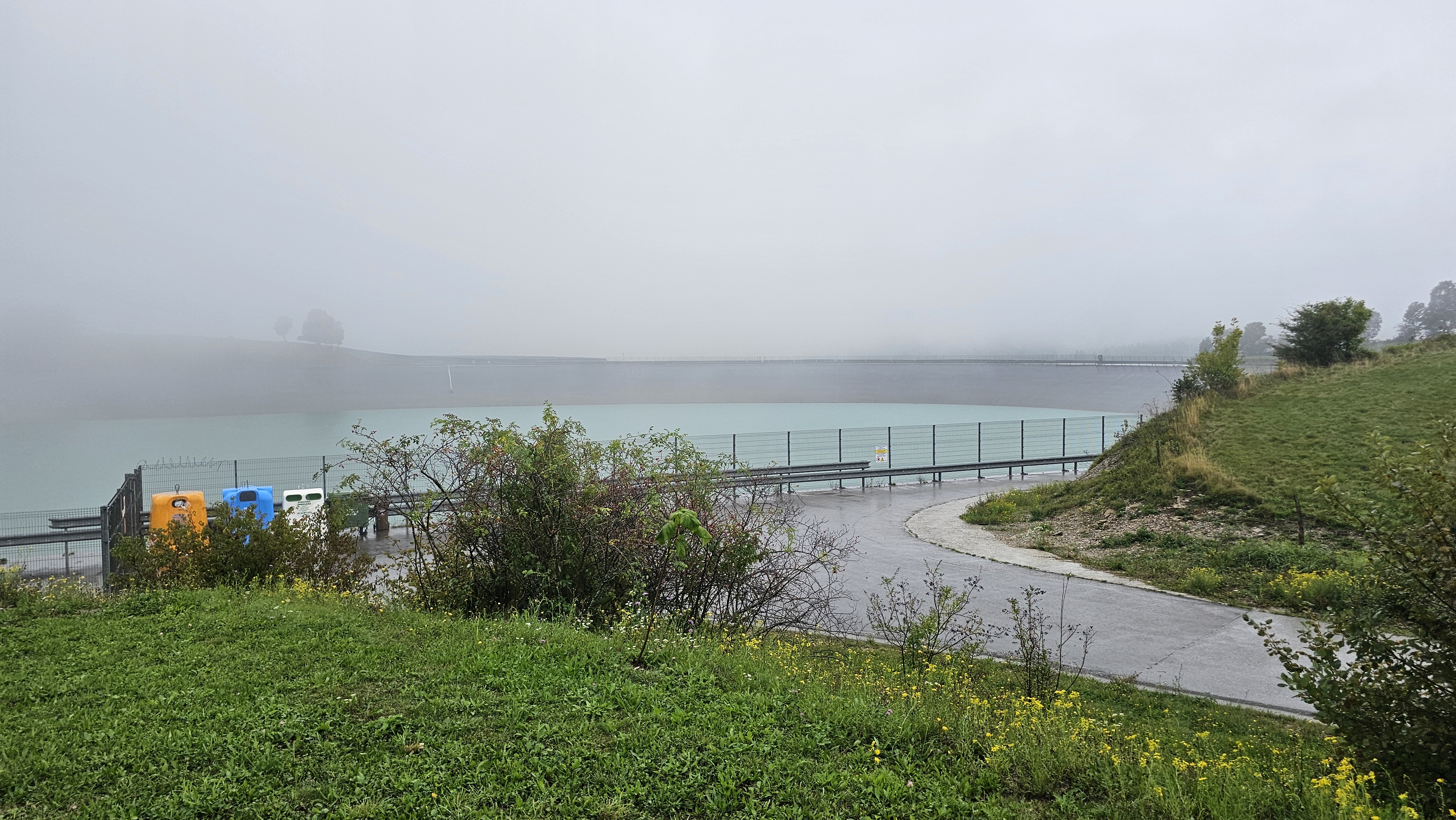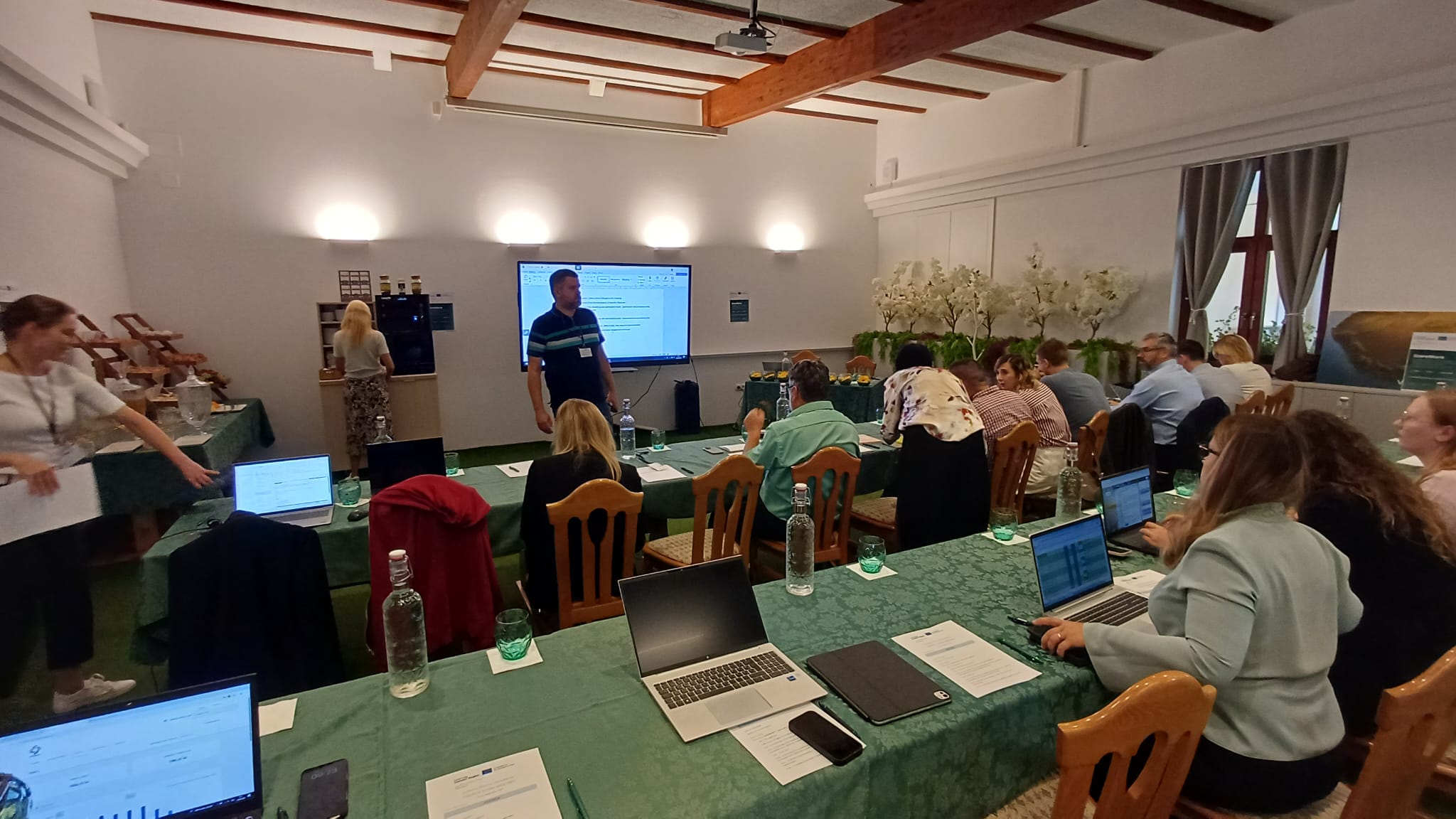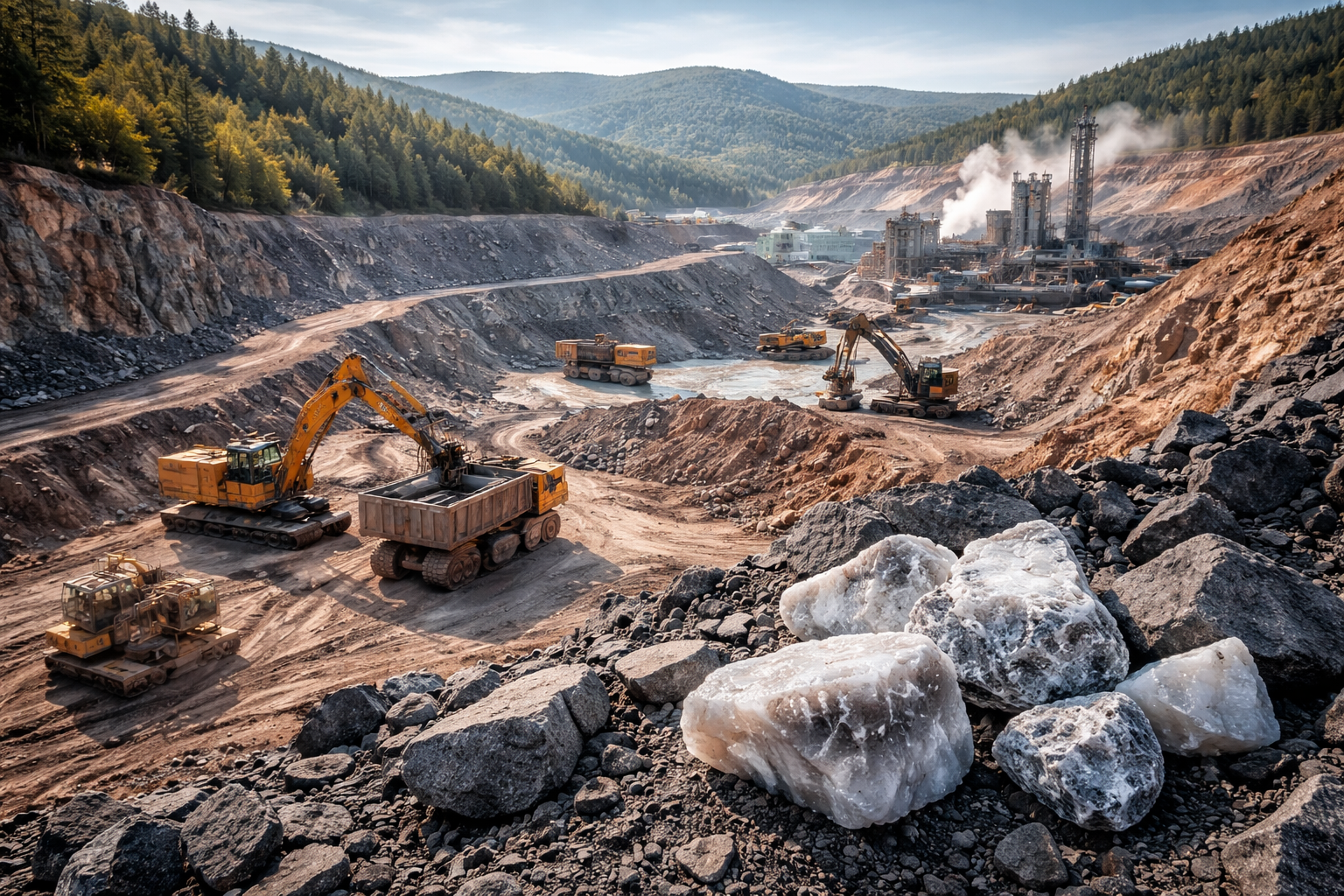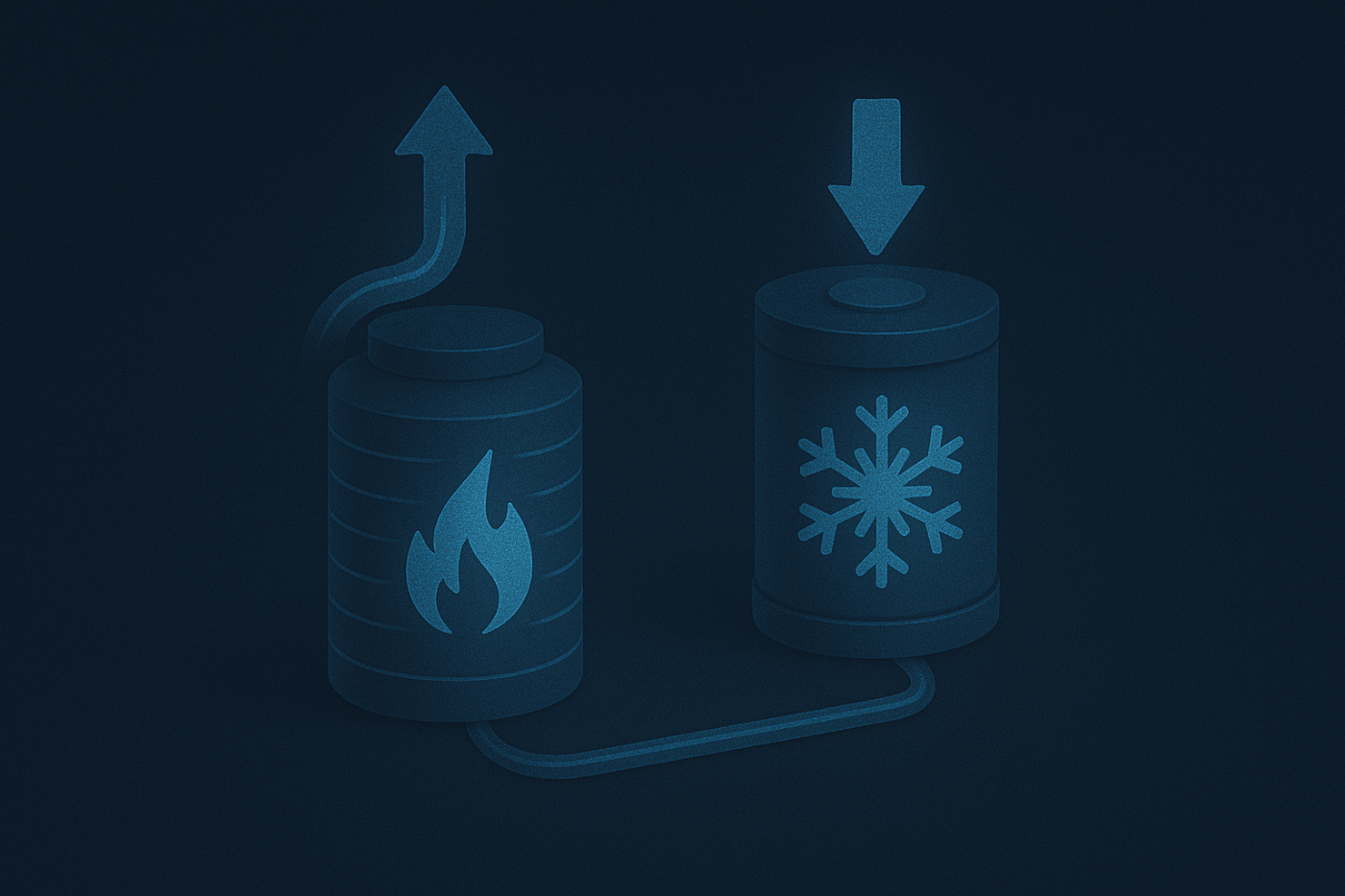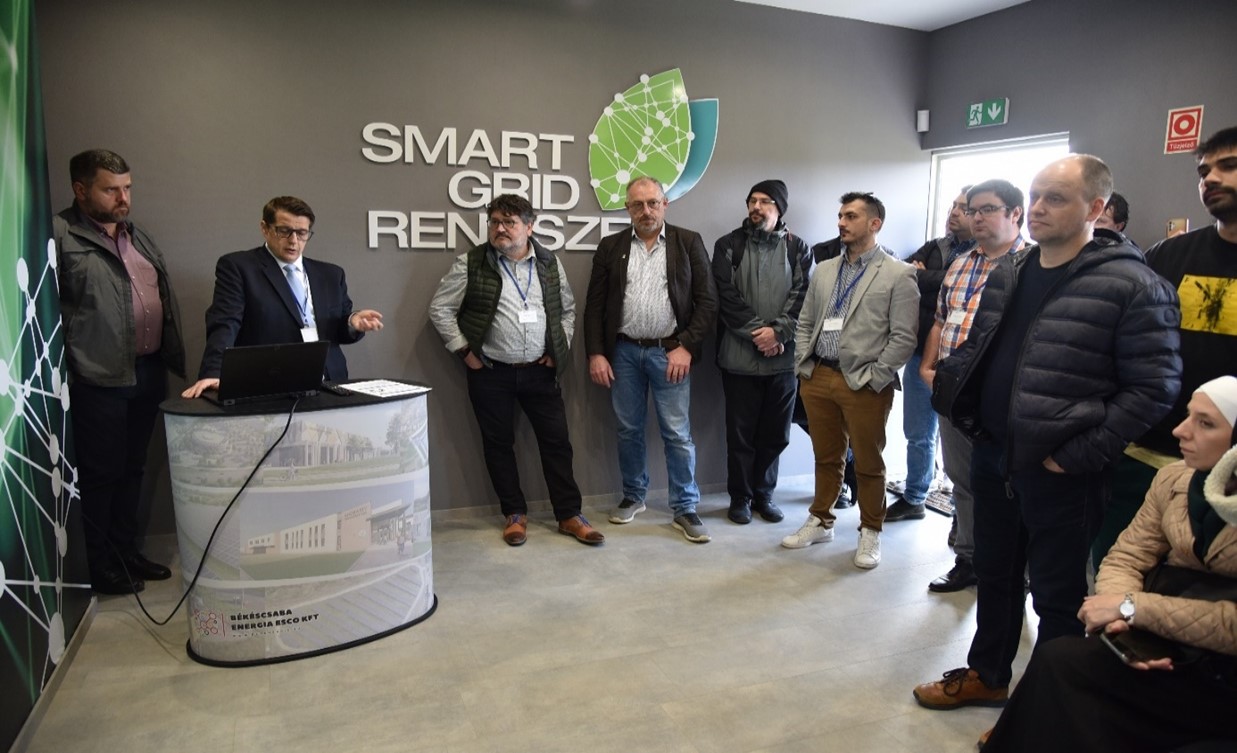
Best practice site visit - Solar PV Park in Békéscsaba (HU)
During the best practice site visit to the Békéscsaba Solar Park, Mr. Gyula Kovács, the Managing Director of Békéscsaba Energia Esco Ltd., presented the operation of the Smart Grid system and the Solar Park at the Visitor Center. The Smart Grid system in Békéscsaba is the first of its kind in Hungary, offering real-time monitoring of energy conditions.
Solar PV Park, Békéscsaba (HU): This event, hosted by Békéscsaba Energia Esco Ltd. (established in 2020 and indirectly owned by the local government of Békéscsaba), aims to support the implementation of complex energy projects within the Modern Cities Programme. Their focus includes operational tasks related to energy and smart infrastructures in Békéscsaba, as well as promoting, developing, and managing innovative projects such as energy-related developments, smart transformation, and greenport initiatives.
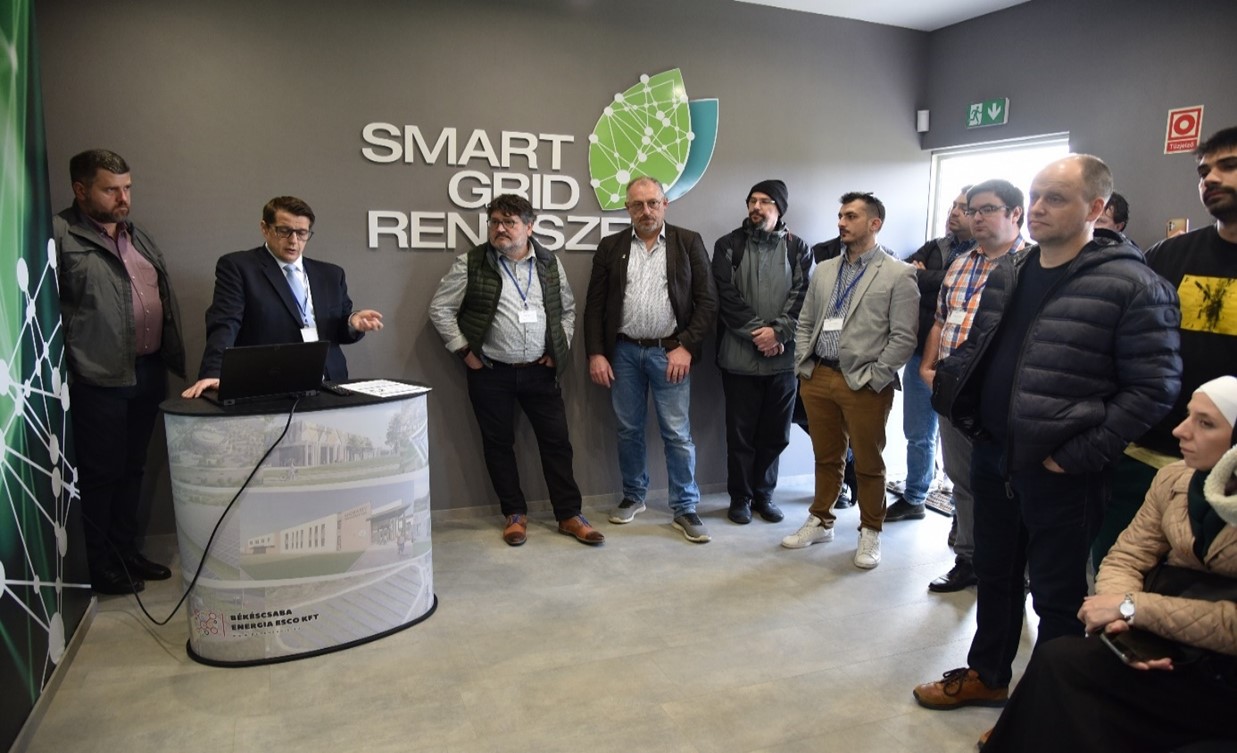
Visitor Center, Békéscsaba (HU)
Smart Grid Components:
PV Solar Parks:
We visited three interconnected PV solar parks, with a combined output of 1.3 MWp, supported by over 3000 panels. The system is managed by two inverters, each with a capacity of 650 kW, allowing for future expansion.
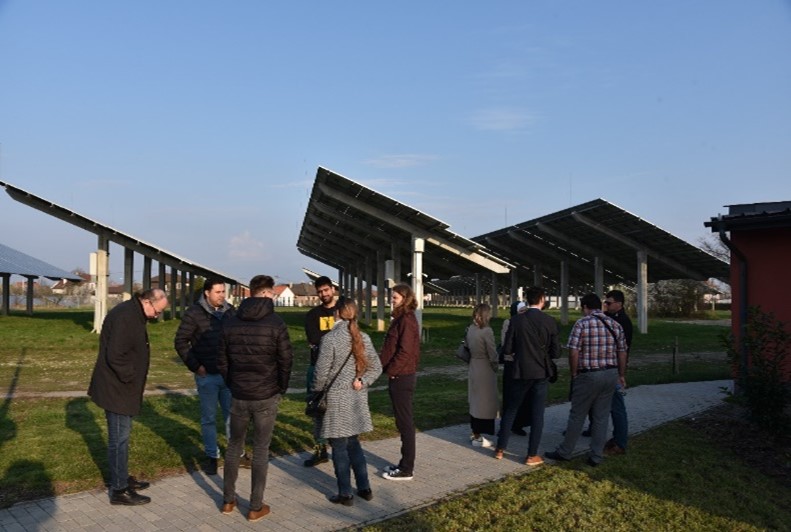
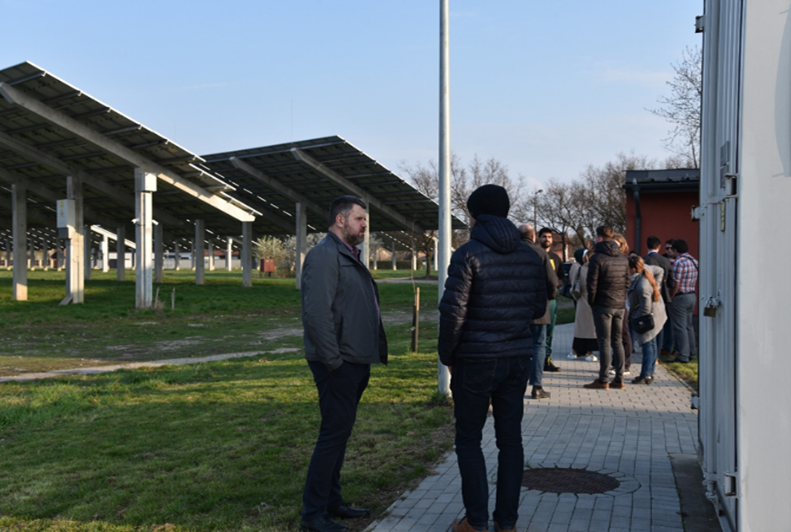
Energy Storage Unit:
The energy storage unit has a total output of 1.2 MW and a capacity of 2.4 MWh, utilizing Samsung lithium-ion batteries with over 7000 cells. It features a unique fire protection system for enhanced safety and optimizes usage by maintaining the State of Charge (SoC) between 15% and 85%.
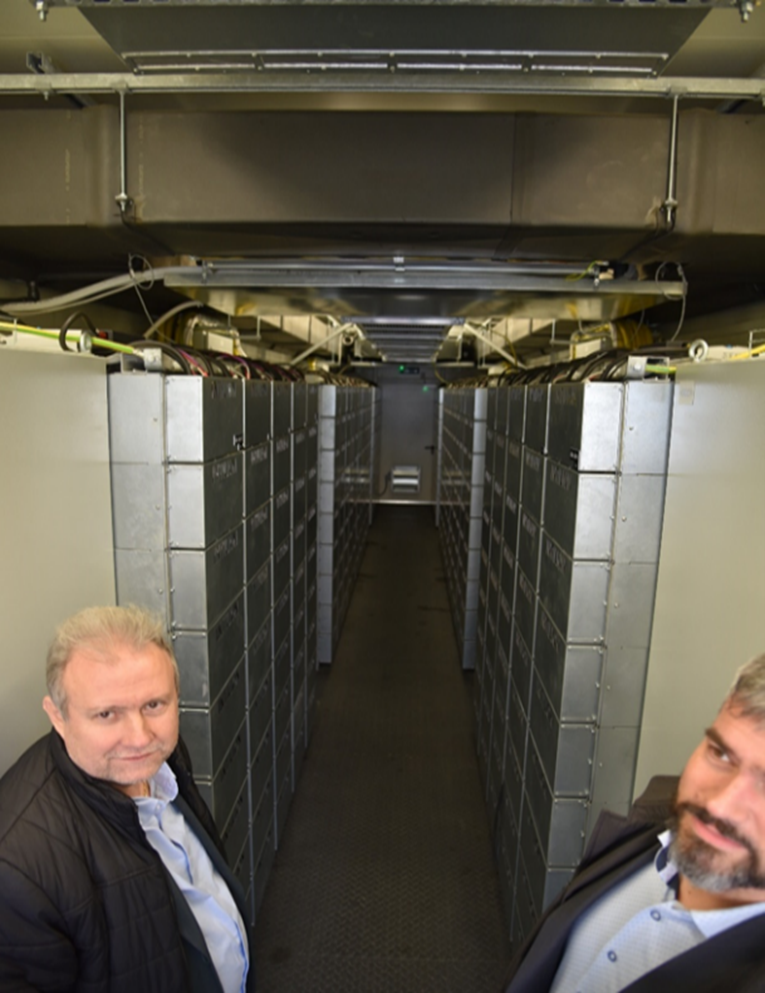
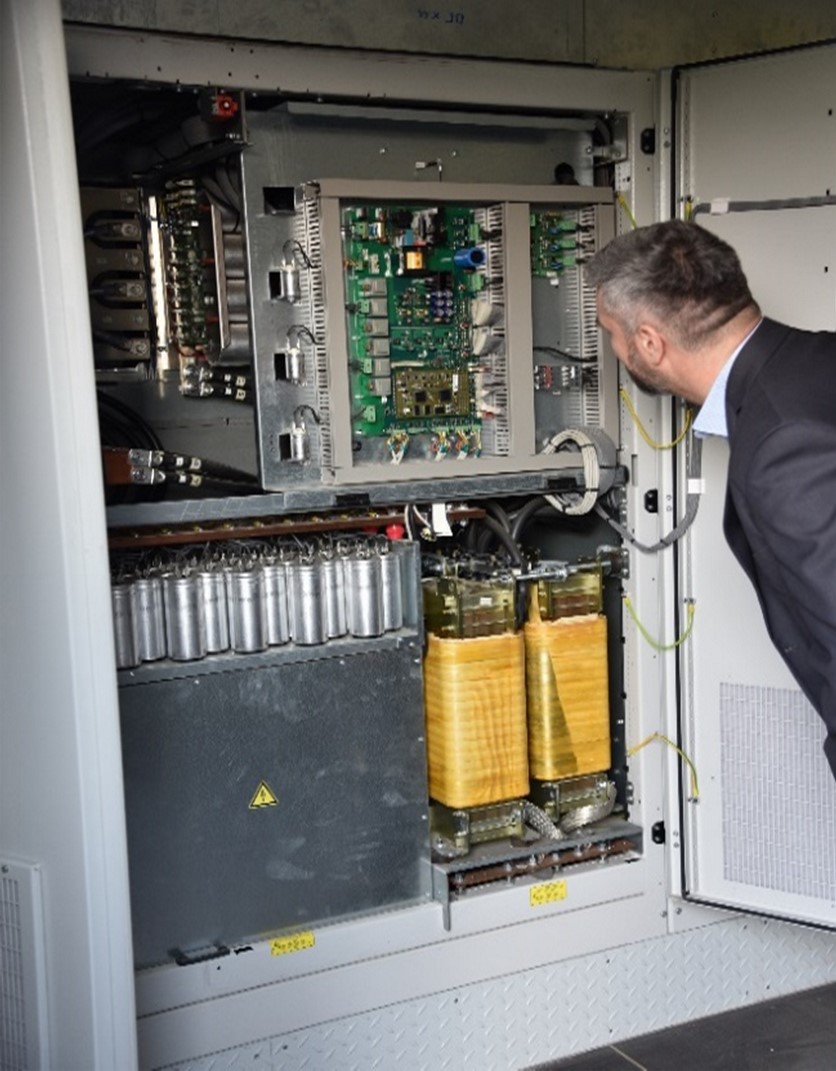
Lithium-ion Battery Energy Storage System (BESS)
Visitor Center and Smart System Control:
The Visitor Center educates the public about the Smart Grid System through interactive touch screens, 3D animations, and real-time reports. The Smart System Control operates remotely, ensuring security through a redundant system that includes both landline and mobile connections. On-site requirements are minimal, limited to technical maintenance.
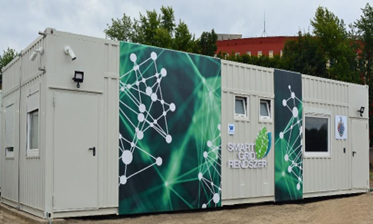
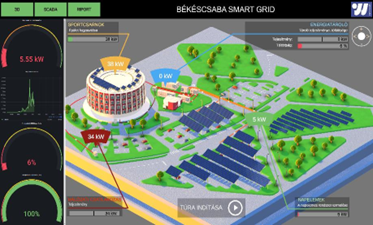
Visitor Center, Smart Grid System
Conclusion:
The best practice visit to the Solar PV Park in Békéscsaba underscored the potential of energy storage systems in enhancing the efficiency and reliability of renewable energy projects. Lithium-ion storage systems, with their high energy density, operational flexibility, and advanced optimisation capabilities, have proven to be effective in supporting clean energy goals. Their ability to reduce grid dependency, provide backup power during outages, and balance energy production and consumption offers significant advantages for modern energy infrastructures.
However, the challenges associated with lithium-ion technology, such as limited operational capacity due to conservation measures, environmental concerns related to mining and disposal, and frequent maintenance interruptions, highlight the need for alternative solutions. Additionally, the reliance on finite resources like lithium and cobalt makes the long-term sustainability of this technology questionable. While lithium-ion systems have laid the groundwork for large-scale energy storage, their limitations emphasise the urgency of developing more environmentally friendly and resource-efficient alternatives.
To ensure the sustainability and scalability of renewable energy systems, the exploration and adoption of alternative storage technologies—such as solid-state batteries, flow batteries, or hydrogen-based systems—are crucial. These emerging solutions offer the promise of greater environmental compatibility, reduced resource dependence, and improved system longevity, paving the way for a more sustainable energy future.
News & Events
Read the most recent updates and explore the upcoming events.

